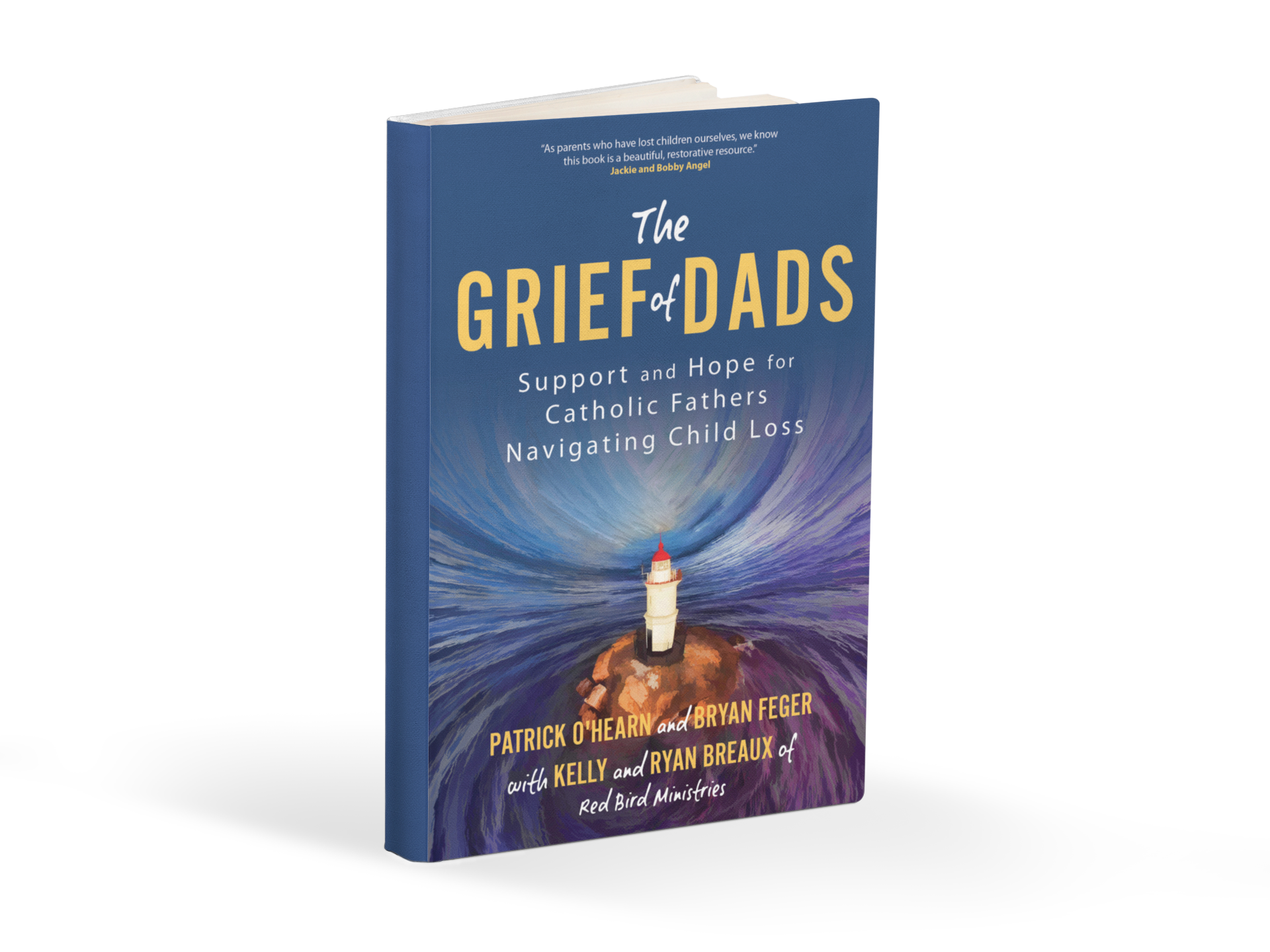The Grief of Dads
As a young girl, I often daydreamed about my wedding day. I would imagine my dress, the colors of the flowers, and who my future husband would be. I’ve always loved love stories and knew that God would send me a knight in shining armor. I knew he would protect and care for me. Marriage and motherhood was going to be perfect. I wanted more than anything to be a wife and mother. These lofty dreams filled my mind with the significant yet abstract decisions and whimsical ideas that many young girls have. From early on, every decision I made was moving towards marriage and motherhood. On July 13, 2002, I married my best friend, Ryan. It was a beautiful day, and I was able to choose all the little details I had dreamt of for our wedding day.
We never imagined that becoming parents would be the most challenging and heartbreaking chapter of our lives. The suffering that came early on in our marriage felt like a bomb dropped out of the sky without warning. Losing a child was never a part of my dreams or plans. Our journey, our story took a different turn than we would have chosen on our own.
Losing a child as a young couple sets the tone for the rest of your lives because we look at everything through the lens of grief. When we were preparing for marriage, we never discussed the possibility of losing a baby. And when Talon died, our world, our life, was shattered. Nothing can possibly prepare you for the loss of a child, no matter how tiny your baby lives inside your womb or how short a time you had with them; equally devastating. If you had the opportunity to give birth and meet your child, create memories, and witness milestones like the first day of school, graduation, marriage, and grandchildren, but then they leave this world before you, it's absolutely heartbreaking. Losing a child is the hardest and heaviest cross a couple will ever carry in their marriage.
As a mother of loss, you are experiencing profound suffering. Your husband is with you. He is right there, but he's mostly silent like St. Joseph. You ponder everything like the Blessed Mother. You notice him occupying himself with tasks like tinkering with the lawnmower, rearranging his workshed, asking to go fishing, and accidentally breaking something while fixing it. You, on the other hand, can’t stop crying, can’t stop smelling your baby’s blanket, and are unconsolable most times. He doesn’t ask about your feelings because he sees them emoting so openly and often holds you without speaking a word of comfort. Throughout this, you question whether he's grieving or sometimes if he even cares, as he doesn't express much.
Grief is a foreign language that we oftentimes try to decode. We have a difficult time understanding our own grief, let alone others. It was only after I understood that men and women grieve differently that I developed compassion for my husband’s grief. My husband needed time to process his feelings, not something that came naturally to him. He didn’t want to be away from me, but I never knew these things. He never told me, thinking he didn’t want to burden me, but he needed to take time and make space for his grief, too. This was not something he was able to do while he was at work all day. I had no idea how hard it was for him to be away from me every day. My mental health was always at the forefront of his brain as a protector. It left little time to care for himself. Our beautiful husbands want nothing more than to take their broken hearts home to be nurtured by the woman they love. Only if I knew how to soothe his grief I would have given him the time, space, and love he needed.
Last year, we released a book titled "The Grief of Dads" in collaboration with Ave Maria Press. The book aims to help both men and women understand the unique grieving process of fathers. This resource is a heartfelt effort to shed light on the often misunderstood experience of male grief, especially after the loss of a child. When a couple experiences such a loss, there's a lot of confusion. We believe that couples should support each other through their grief, just as they vowed to on their wedding day. However, it's common to not fully understand what this support looks like until we're faced with grief and have to take action.
If you know a father who is grieving and could benefit from some comforting words, consider giving them "The Grief of Dads" as a resource for Father's Day. "The Grief of Dads" is a thoughtful gift, even for fathers who may not be regular readers, as the short stories are easy to read and understand. Father's Day can be especially tough for men who have suffered a loss as they try to balance their joy for their living children with the sadness of their deceased child. Be especially kind to these fathers on Father's Day, giving them space for their grief. Let them know they are not alone on their journey to healing.

